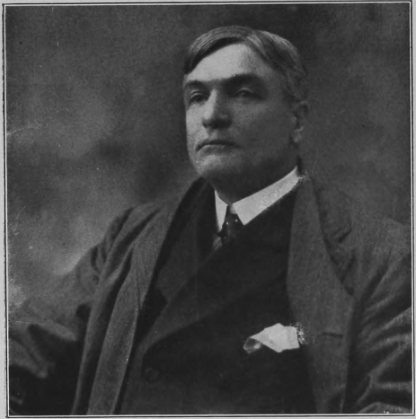- Facebook49
- Twitter2
- Total 51
If—very hypothetically—Donald J. Trump were to be convicted and even incarcerated, but also elected president in 2024, could he pardon himself? Since a president’s pardoning power is unlimited, the constitutional question might turn on whether the act of pardoning can be reflexive. Is it a correct use of the word “pardon” to say that someone pardoned himself?
The caption with above photo reads: “The only Man on Record who is known to have Pardoned himself out of Prison. He began life as a School Teacher, Clerk in a Law Office, full fledged Lawyer and Treasurer of a Political organization in New England, with whose funds he decamped. He has been in Prison a dozen times under as many aliases, where he has spent twenty-five years. When he pardoned himself out of prison he was in Nashville, Tenn. under the name of Henry B. Davis. He is now supposed to be dead.”
Leaving aside the Trumpian capitalization in this passage, the man who called himself Henry B. Davis did not actually pardon himself. He confessed that he “forged a petition bearing upward of 150 signatures, writing differing in each, the names of the leading citizens of Tipton, Tenn., the county in which I was sentenced. I then forged a letter bearing the signature of the firm of attorneys that defended me, one of whom was a friend of the Governor … I then forged another letter purporting to have been written by the aforesaid attorney to John Tipton, representative in the Legislature in Nashville, in which he was asked to see Governor Buchanan, and to urge him to pardon Henry B. Davis (my alias). All this was done in March, 1891. On the third day of April, 1891, the pardon reached the warden at Tracy City.”
In any case, this was not the only person to have pardoned himself. A Google search led me to a book by my friend Cynthia Levinson and Sanford Levinson, Fault Lines in the Constitution, which mentions the case of Isaac Stephens. While governor of the Territory of Washington, Stephens was convicted and fined for abusing his power. He was fighting a terrible war against Native people but was fined for offenses against white settlers. He actually pardoned himself and got away with it, although just six years later he died heroically on the Union side of the Civil War.
Neither example is very honorable, and I haven’t been able to find other cases of successful self-pardoning … so far.
Sources: John Josiah Munro, The New York Tombs, Inside and Out!: Scenes and Reminiscences Coming Down to the Present.–A Story Stranger Than Fiction, with an Historic Account of America’s Most Famous Prison (1909) and Cynthia Levinson and Sanford Levinson, Fault Lines in the Constitution: The Framers, Their Fights, and the Flaws that Affect Us Today.
